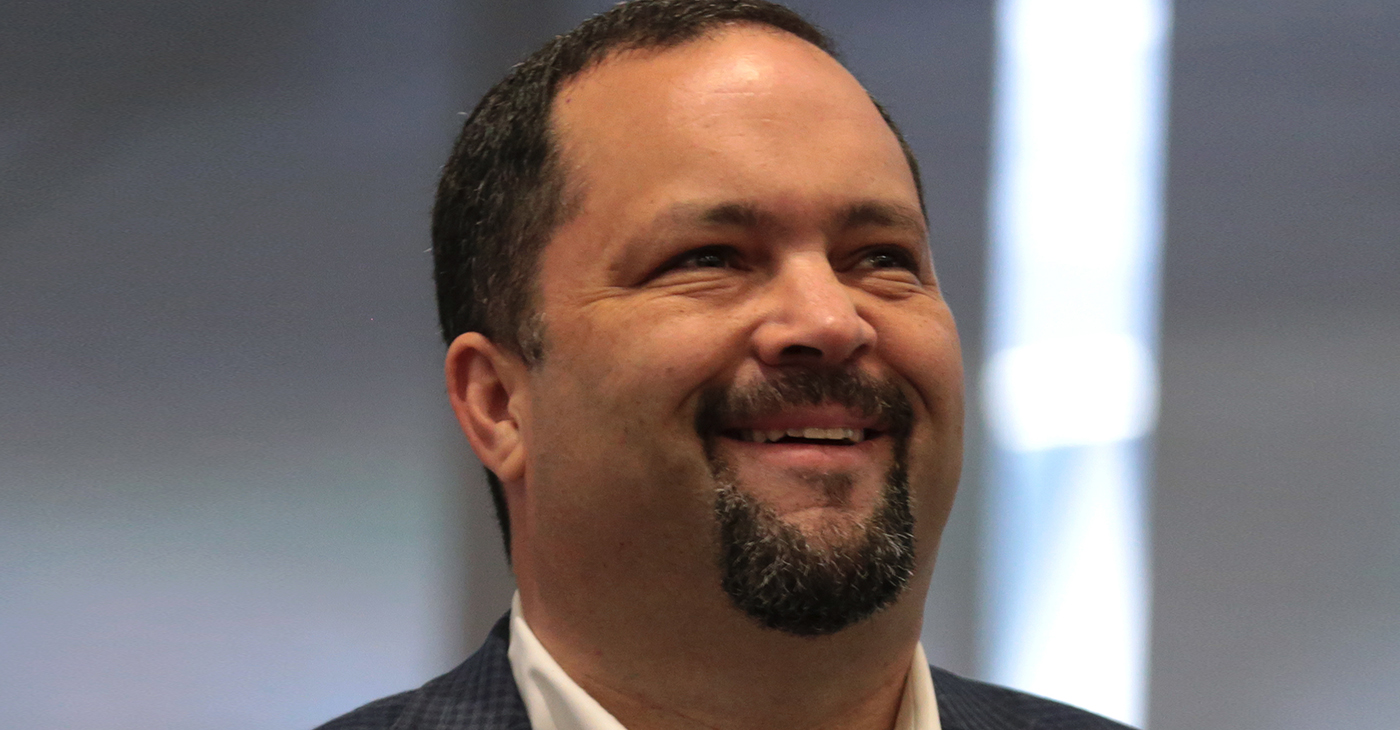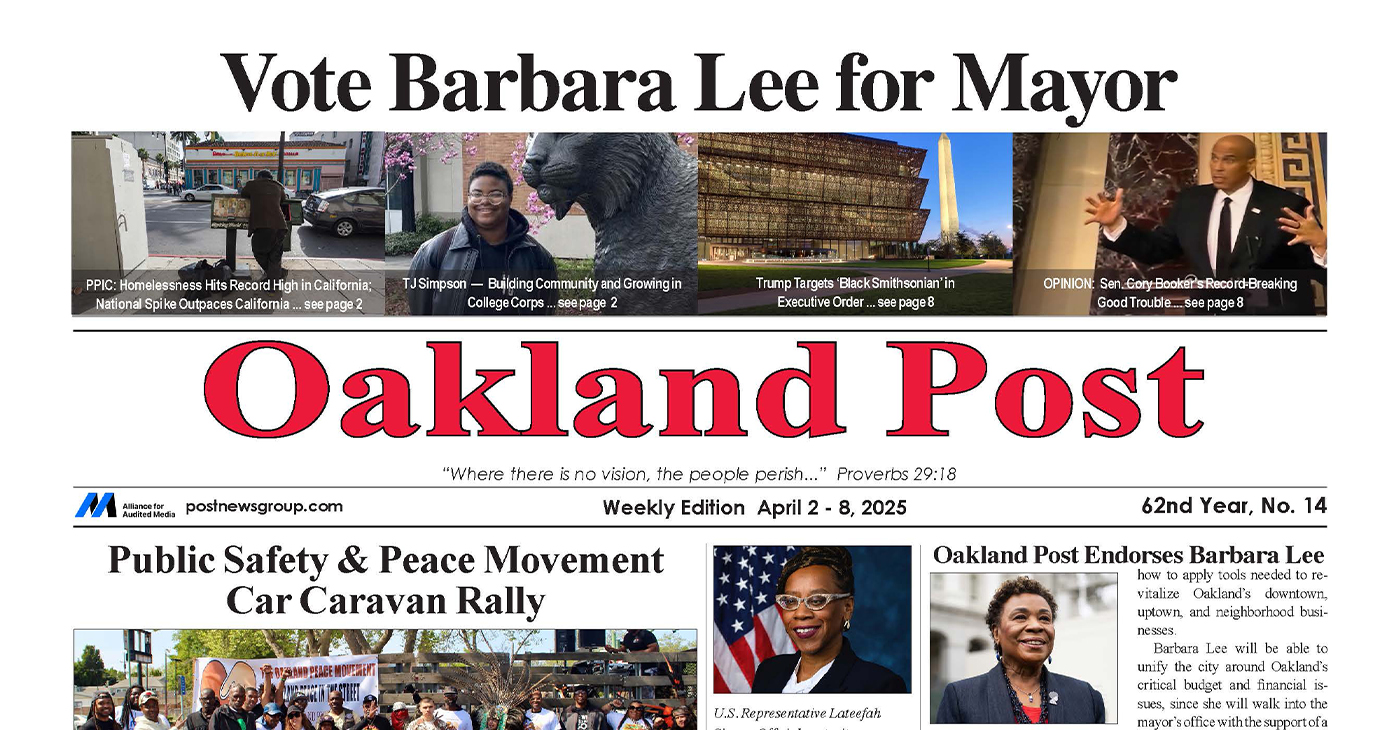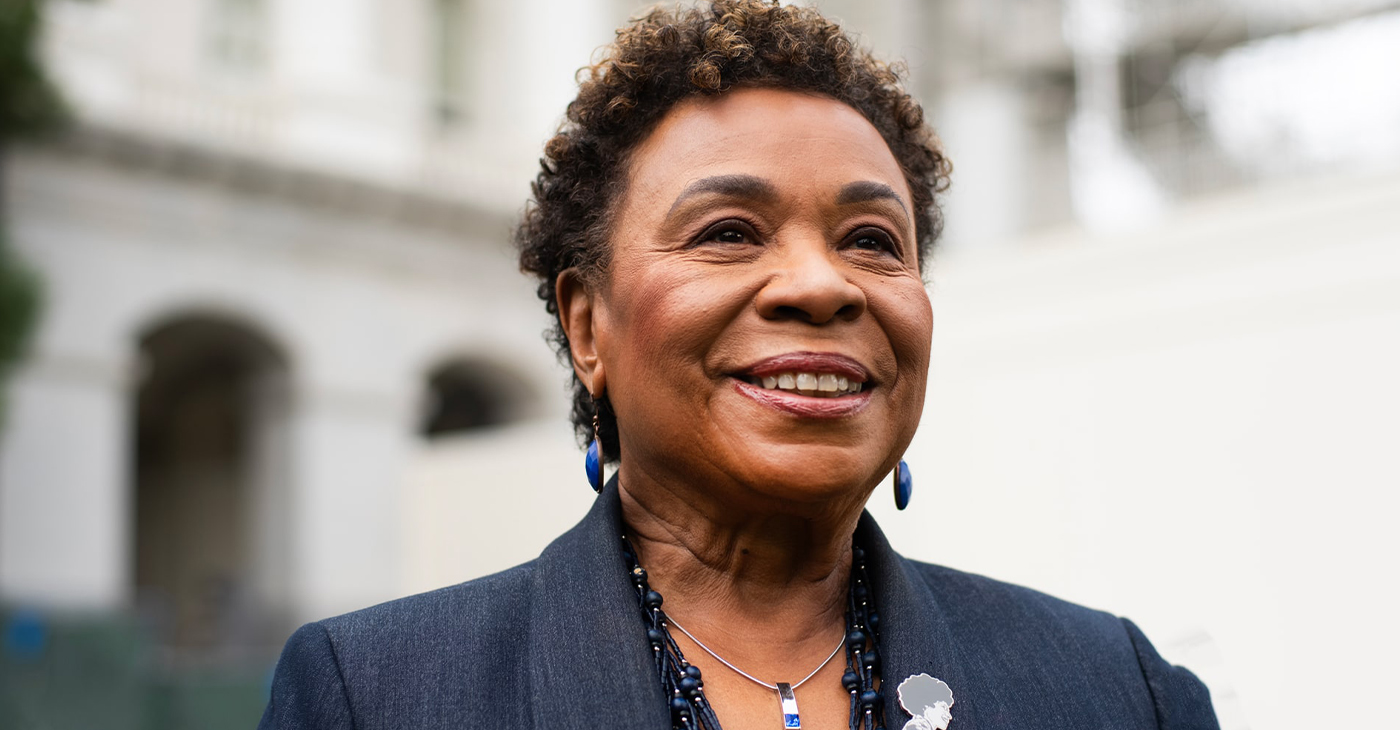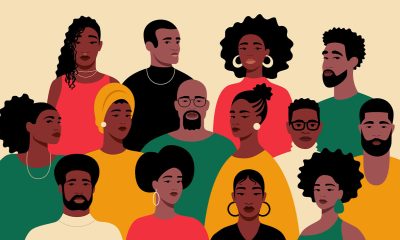Activism
COMMENTARY: State of the Union: Democracy Needs Defenders
The president called on Congress to defend democracy at home by passing the Freedom to Vote Act and the John Lewis Voting Rights Act, two voting rights bills blocked by Senate Republicans’ filibuster. The president added a call for more transparency and accountability in our elections, saying, “And while you’re at it, pass the Disclose Act so Americans can know who is funding our elections.”

By Ben Jealous, as President of People For the American Way
President Joe Biden’s State of the Union address reminded Americans that democracy needs defenders — here at home as well as in Ukraine.
Russian dictator Vladimir Putin’s attack on Ukraine was understandably a major focus of Biden’s speech. Putin’s eagerness to expand his power by unleashing brute force against his neighbors is a threat to peace in Europe and the world. Putin’s track record of killing journalists and political opponents has made it clear that he is an enemy of democracy and democratic values.
We have our own threats to democracy to confront, including the Capitol insurrectionists, the political and media figures who portray them as heroes, and politicians who undermine our democracy.
And we have important domestic priorities that cannot be put on hold or set aside. President Biden reminded Americans that the right to vote is under assault. “In state after state, new laws have been passed, not only to suppress the vote, but to subvert entire elections,” he said.
The president called on Congress to defend democracy at home by passing the Freedom to Vote Act and the John Lewis Voting Rights Act, two voting rights bills blocked by Senate Republicans’ filibuster. The president added a call for more transparency and accountability in our elections, saying, “And while you’re at it, pass the Disclose Act so Americans can know who is funding our elections.”
But, as we know, we won’t see solutions like that on the federal level until we have a pro-democracy majority in the Senate. And that means we have much work to do between now and the November elections.
Biden also addressed policing, another issue on which Americans are demanding more transparency and accountability. Police unions and politicians who resist change and accountability for law enforcement officers frequently tell Americans that they must choose between fair policing and safe communities. President Biden rejected the false narrative that we cannot have public safety and equal justice, saying “Let’s not abandon our streets — or choose between safety and equal justice.”
Unfortunately, the president muddled this message with a call for greater police funding without making it clear that we must invest in innovative approaches to public safety rather than shoveling more money into a system that fails to keep many Americans safe.
The president did point to one important aspect of reform by calling for better training for police officers. But we must think much bigger. Young political leaders and community activists across the country are taking bold steps to reimagine public safety. We should all get behind those efforts.
One important model for making communities safer for everyone is moving forward in Ithaca, New York. When it is fully implemented, the Ithaca model will replace the current police department with a department of public safety. The new department will be civilian-led and will include both uniformed police and unarmed community safety workers. That will reduce the potential for situations that do not require an armed response, which we know can escalate into deadly violence. And it will free armed officers to focus their time on the kinds of crimes that do require their attention.
That’s how we can keep everyone safe, including people who are most likely to be targets of unjustified and deadly police violence. By helping more Americans view public safety from a broader perspective and breaking out of the idea that our only choices are more or less money for cops, we can overcome political resistance and move toward better models of public safety.
And that brings me to Judge Ketanji Brown Jackson. Just a few days before the State of the Union address, President Biden nominated Jackson to serve on the U.S. Supreme Court. She is a brilliant lawyer who is now serving as a federal judge.
She will bring to the Supreme Court perspectives that have never been represented among the justices. She will be the first Black woman ever to serve on our highest court. She will be the first justice to have been a public defender and the first since Thurgood Marshall to have done criminal defense work. She has a personal understanding of how our justice system can treat people without wealth and political influence.
Having Judge Jackson’s brilliant mind and her life experience on the Supreme Court will strengthen the court and our democracy. Her confirmation will be one more step in our country’s long and continuing journey of becoming “a more perfect union.”
Ben Jealous serves as president of People For the American Way and Professor of the Practice in the Africana Studies Department at the University of Pennsylvania where he teaches leadership.
Activism
Oakland Post: Week of April 2 – 8, 2025
The printed Weekly Edition of the Oakland Post: Week of April 2 – 8, 2025

To enlarge your view of this issue, use the slider, magnifying glass icon or full page icon in the lower right corner of the browser window.
Activism
Oakland Post Endorses Barbara Lee
Barbara Lee will be able to unify the city around Oakland’s critical budget and financial issues, since she will walk into the mayor’s office with the support of a super majority of seven city council members — enabling her to achieve much-needed consensus on moving Oakland into a successful future.

As we end the celebration of Women’s History Month in Oakland, we endorse Barbara Lee, a woman of demonstrated historical significance. In our opinion, she has the best chance of uniting the city and achieving our needs for affordable housing, public safety, and fiscal accountability.
As a former small business owner, Barbara Lee understands how to apply tools needed to revitalize Oakland’s downtown, uptown, and neighborhood businesses.
Barbara Lee will be able to unify the city around Oakland’s critical budget and financial issues, since she will walk into the mayor’s office with the support of a super majority of seven city council members — enabling her to achieve much-needed consensus on moving Oakland into a successful future.
It is notable that many of those who fought politically on both sides of the recent recall election battles have now laid down their weapons and become brothers and sisters in support of Barbara Lee. The Oakland Post is pleased to join them.
Activism
Oakland Post: Week of March 28 – April 1, 2025
The printed Weekly Edition of the Oakland Post: Week of March 28 – April 1, 2025

To enlarge your view of this issue, use the slider, magnifying glass icon or full page icon in the lower right corner of the browser window.
-

 Activism2 weeks ago
Activism2 weeks agoWe Fought on Opposite Sides of the Sheng Thao Recall. Here’s Why We’re Uniting Behind Barbara Lee for Oakland Mayor
-

 Activism4 weeks ago
Activism4 weeks agoOakland Post: Week of March 5 – 11, 2025
-

 #NNPA BlackPress2 weeks ago
#NNPA BlackPress2 weeks agoRev. Dr. Jamal Bryant’s Black Church Target Boycott Mobilizes 150,000
-

 Activism3 weeks ago
Activism3 weeks agoSan Francisco Is Investing Millions to Address Food Insecurity. Is Oakland Doing the Same?
-

 #NNPA BlackPress4 weeks ago
#NNPA BlackPress4 weeks agoFighting to Keep Blackness
-

 #NNPA BlackPress2 weeks ago
#NNPA BlackPress2 weeks agoRecently Approved Budget Plan Favors Wealthy, Slashes Aid to Low-Income Americans
-

 Activism2 weeks ago
Activism2 weeks agoFaith Leaders Back Barbara Lee for Mayor, Criticize Candidate Loren Taylor for Dishonest Campaigning
-

 Activism3 weeks ago
Activism3 weeks agoOakland Post: Week of March 12 – 18, 2025





















































